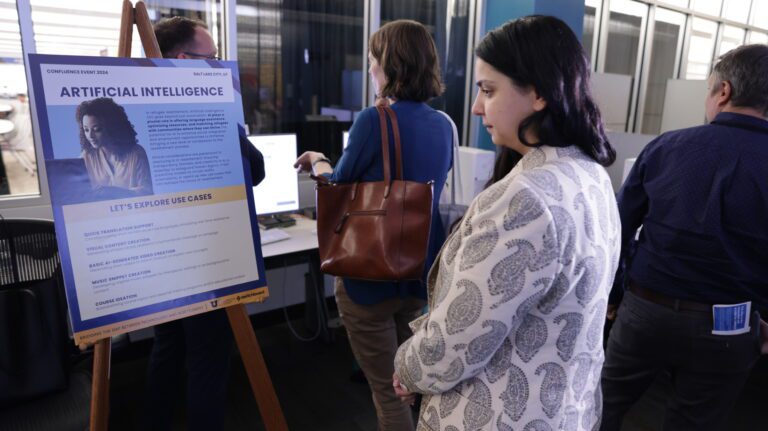Switchboard Blog
Switchboard’s blog posts offer a wide range of insights on the newcomer experience, including practical tips for navigating the resettlement process, resource lists tailored to community needs, case studies about relevant programs, engaging stories of successful integration, and more.
FEATURED BLOG

Insights from the Field: The Use of Artificial Intelligence in Resettlement Work
Artificial Intelligence (AI) is rapidly transforming humanitarian aid and resettlement services. In this blog post, two experts in the field—Kimberly Mays, a Senior Program Officer
Refine Search
This second post in a two-part series that was informed by conversations with Senior Trial Attorney Liza Zamd from the U.S. Department of Justice Civil Rights Division’s Immigrant and Employee Rights Section. It provides tips on overcoming two common challenges when employers request specific documents from refugees and asylees as they complete the I-9.
- Daniel Wilkinson
This is the first post in a two-part series that was informed by conversations with Senior Trial Attorney Liza Zamd from the U.S. Department of Justice Civil Rights Division’s Immigrant and Employee Rights Section. It covers three common misconceptions held by both employers and service providers regarding work authorization, and shares additional useful resources.
- Daniel Wilkinson
As a young person, adjusting to a new place is difficult no matter the circumstances. In adapting to their new communities, refugee youth need to understand how race and racism may shape their lives in the U.S., including the history of systemic racism and discrimination, the history of anti-racist movements, and what they need to know about current events like protests against police brutality.
- Ethiopian Community Development Council (ECDC)
Conversations about race are challenging, but they allow people to get to know one another better and build stronger communities. It is important for newcomers to have a better understanding about racism in America, how it may affect their daily lives, and what they can do to change it. It is equally important that refugee service providers consider the adjustments, new information, and learning curves newcomers face. Providers must take those into account as they think about when, where, and how to introduce topics about race, racism, and anti-racism with clients.
- Ethiopian Community Development Council (ECDC)
Refugee service providers play an important role in helping newcomers integrate into communities across the country. As they adjust to their new life in America, many refugees and their family members are likely to experience racism or discrimination first-hand. In our role as providers, managers, and evaluators of services that help newcomers successfully integrate into U.S. communities, we must be willing and able to have meaningful conversations about race and racism with refugees.
- Ethiopian Community Development Council (ECDC)
We recently published a blog post on Virtual Job Readiness Resources for Clients With Online Access. But how are agencies continuing job readiness training when participants don’t have access to technology or lack digital literacy skills? This post includes job readiness resources for supporting clients without online access and/or digital skills, informed by strategies refugee service providers have begun implementing nationwide.
- Carrie Thiele






